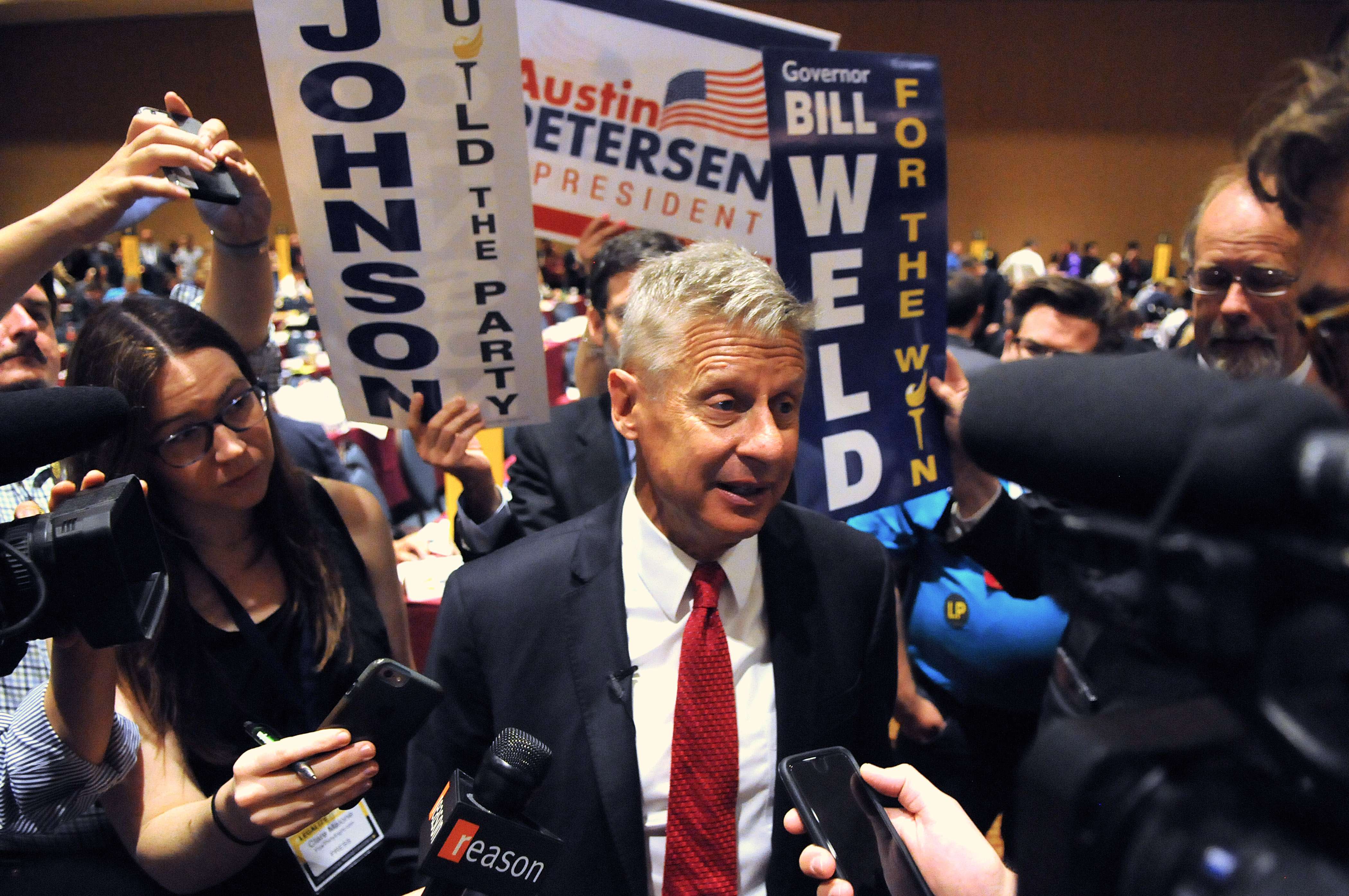Gary Johnson Explains His Foreign Policy Beliefs to The Los Angeles Times
He's "skeptical" of intervention but still seems to think most of the world's perceived menaces require some sort of, not always specified, U.S. action. Interview also hits health care, coal, the fair tax, and why he thinks the EPA is sometimes necessary.
The Los Angeles Times' editorial board interviewed Libertarian Party presidential candidate Gary Johnson.
Johnson continues to take things with his version of light wit, such as pretending it was the first time he'd been asked why anyone should bother thinking of voting for him, given how unlikely it is he'd win. He repeats, as he often does, his team's unique combination of being fiscally conservative and socially liberal, and "skeptical" about military intervention, and in support of free trade, with a general yen for giving the American people "choice" so long as those choices "don't put others in harm's way." That's a decent overview of the libertarian message.

Johnson says he believes his polling would come out as high as 20 percent if voters were first asked their presidential preference question including all the choices, rather than starting with Clinton/Trump and asking a second question including him. (I don't instantly see why that would be, but I might be missing something.) He repeats his self-deprecating recognition that in the search for any other choice Mickey Mouse would likely outpoll him if he were in the mix—"But Mickey's not on the ballot in all 50 states."
Johnson also stresses his support for immigration, and critiques both Trump (for a grabbag of his inhumane and anti-economic liberty stances) and Clinton (for being "beholden" and overly establishment—under Clinton, "Nothing's gonna really change, government's gonna have the answer to everything, and that's gonna mean taxes are gonna go up. If taxes go up, in my opinion, that's less money out of my pocket that I could be spending on my life.") He also slams her hawkish past and likely future.
The Times then presses him in great detail on his foreign policy thought. It's difficult to know whether you actually understand what specifically a Johnson administration would do from his answers.
He is confident that "ISIS really is regionally contained, they're not going anywhere. Think of ISIS as sand through an hourglass right now. I mean, they're done. They're cooked." When pressed as to what this means about what the U.S.'s actions toward them should be, Johnson answers "That we do continue to knock ISIS out and that that is inevitable." How and why this must be done is unclear, and becomes more so as Johnson goes on to question the efficacy of drones in terms of collateral damage, and says while he "supported going into Afghanistan at the beginning" we should now get out, though there will never be an optimal time to do so.
Johnson is pressed on the specifics of his foreign policy thought deeper than usual in this interview. It's not always clear what his actions would be, nor even how best to characterize his overall outlook. "I think the biggest threat in the world right now is North Korea," Johnson says, and says he wants to "get…them disarmed, joining with China diplomatically to address this situation." (Johnson had told me earlier that this does not mean joining China in actual military action against them, though it's hard to tell what it does mean specifically. As with his vague ISIS answer above, while always mentioning his "skepticism" he also seem reluctant to just say that some foreign perceived menace might not necessarily be our business to combat in any way, nor to specify in a way that would satisfy a military tactician or strategist exactly how we are to solve the problem.)
His answer on NATO also pivots from "We need to honor our treaty obligations" to saying we should reexamine them "and do we really want to go to war with Russia over the Baltic states?"
The interview goes beyond just foreign policy into great detail about Johnson's "fair tax" beliefs and his thoughts on the medical market—"What is genuinely needed when it comes to healthcare is a free-market approach, recognizing that healthcare right now is about as far removed from the free market as it could be. I reject the notion that in a free-market approach to healthcare we would have insurance to cover ongoing medical need. We would have insurance to cover ourselves for catastrophic injury and illness and we would pay as you go for a system that I believe would be absolutely affordable."
He tells an anecdote of environmental regulation during his days as governor of New Mexico in which he felt it necessary to bring a bad actor contaminator of the Red River, Molycorp, to heel by having them declared a federal Superfund site.
"So there's an example of the EPA and why the EPA should exist. And why government should exist to protect us against those who would do us harm," Johnson says. He openly disagrees with a standard libertarian argument for tort rather than regulation as a more efficient and just solution to environmental harms. "And in this case the Libertarian argument would be, as individuals we could have brought suit against polluters. We can bring suit individually. Well, in the case of Molycorp, you know what, they would have been able to withstand any individuals trying to bring that suit against them."
He also repeats an argument that aggravated many Libertarians at the convention that nominated him, his belief that the forces that are driving coal prices down lately are not from government pressure but that "The free market has brought an end to the coal industry." He says he believes in man-made global warming and is "open also the the notion of a carbon tax."
It is one of the most wide-ranging, and deep, interviews hitting Johnson on a wide gamut of current policy issues, well worth a full read.


Show Comments (165)